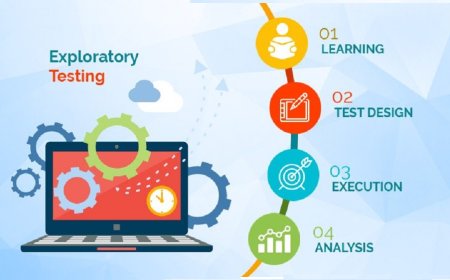AI in Full Body Checkup: The Future of Health

Artificial Intelligence (AI) is transforming industries around the globe, and healthcare is no exception. One of the most promising applications is the integration of AI in full body checkup procedures. With increasing demand for preventive care and early disease detection, combining AI technology with routine health screenings is paving the way for a smarter, faster, and more accurate future of diagnostics.
Understanding the Role of AI in Full Body Checkup
A full body checkup is a comprehensive examination that evaluates your overall health status. It includes multiple diagnostic tests such as blood work, imaging, vital sign analysis, and more, aimed at identifying any early signs of illness or abnormalities. Traditionally, these tests required manual interpretation by physicians, radiologists, and lab technicians. However, with the rise of AI, these processes are becoming significantly more efficient.
AI algorithms are trained on massive datasets of clinical information, enabling them to identify patterns that may be missed by the human eye. This makes them particularly valuable in full body checkup programs where large amounts of data from various tests need to be reviewed and interpreted accurately.
AI for Early Disease Detection
One of the biggest advantages of using AI in a full body checkup is its ability to detect diseases at an early stage. AI systems can analyze imaging results like X-rays, CT scans, and MRIs to identify anomalies such as tumors, blockages, or lesions with high precision. Similarly, AI can assess blood reports for irregularities that might suggest diabetes, liver dysfunction, or heart disease long before symptoms appear.
This capability dramatically improves the effectiveness of a full body checkup, ensuring that individuals can take action before a condition becomes severe. It also reduces human error, as AI does not suffer from fatigue or cognitive bias, which can sometimes affect clinical judgment.
Personalized Health Insights
AI doesnt just process data; it learns from it. By analyzing individual health records, genetic history, and lifestyle factors, AI can provide personalized recommendations during a full body checkup. For instance, if a person has a family history of hypertension, AI might prioritize cardiovascular screening and suggest more frequent monitoring.
This personalization makes the full body checkup far more relevant to the individual. Instead of a one-size-fits-all model, AI allows healthcare providers to deliver custom-tailored assessments, which can lead to better prevention strategies and improved patient outcomes.
Faster and Smarter Reports
One of the most tedious aspects of traditional full body checkup procedures is the waiting period for reports. AI accelerates this process by automating the analysis of medical tests. What would usually take hours or days can now be accomplished in minutes. This not only speeds up diagnosis but also enables faster treatment decisions.
Moreover, AI-generated reports are often accompanied by visual indicators, color-coded risk charts, and data-driven insights that help both patients and doctors understand the results more clearly. As a result, the full body checkup process becomes more transparent and actionable.
Reducing Costs and Increasing Accessibility
AI technology also contributes to making full body checkup services more affordable and accessible. With automation reducing the need for repetitive manual labor, healthcare facilities can lower operational costs. These savings can then be passed on to patients, making preventive health screening less expensive.
Additionally, AI-powered full body checkup systems can be deployed in remote or underserved areas using telemedicine platforms. AI can analyze data collected from wearable devices or mobile diagnostic kits, making it possible to conduct checkups even without a full-scale hospital infrastructure.
Ensuring Consistency and Quality
AI ensures standardization in test interpretations, something that is crucial in a full body checkup. Human interpretations can vary due to experience levels, mood, or workload. AI, on the other hand, follows consistent logic patterns and evidence-based protocols every time. This reliability enhances the quality of the checkup and minimizes discrepancies across different facilities or providers.
The Future of Preventive Healthcare
As AI continues to evolve, it is expected to play an even more central role in the full body checkup landscape. Future systems may include AI-enabled chatbots for pre-assessment, predictive analytics for health risk scoring, and virtual consultations based on real-time data analysis.
By integrating wearable technology, IoT devices, and AI platforms, individuals will be able to perform parts of their full body checkup at home, with results immediately interpreted and stored in cloud-based health records. This will make preventive care more continuous, rather than a once-a-year event.
Conclusion
The future of health lies in intelligent, data-driven solutions and AI is at the core of this transformation. By enhancing the accuracy, speed, personalization, and accessibility of the full body checkup, AI is setting a new standard for preventive healthcare. As the technology matures, we can expect even greater innovations that will empower people to take charge of their health with unprecedented ease and confidence.
Whether its identifying risks early or offering tailored advice, AI is redefining what a full body checkup can achieve. In a world increasingly focused on proactive wellness, this shift is not just welcome its essential.






























